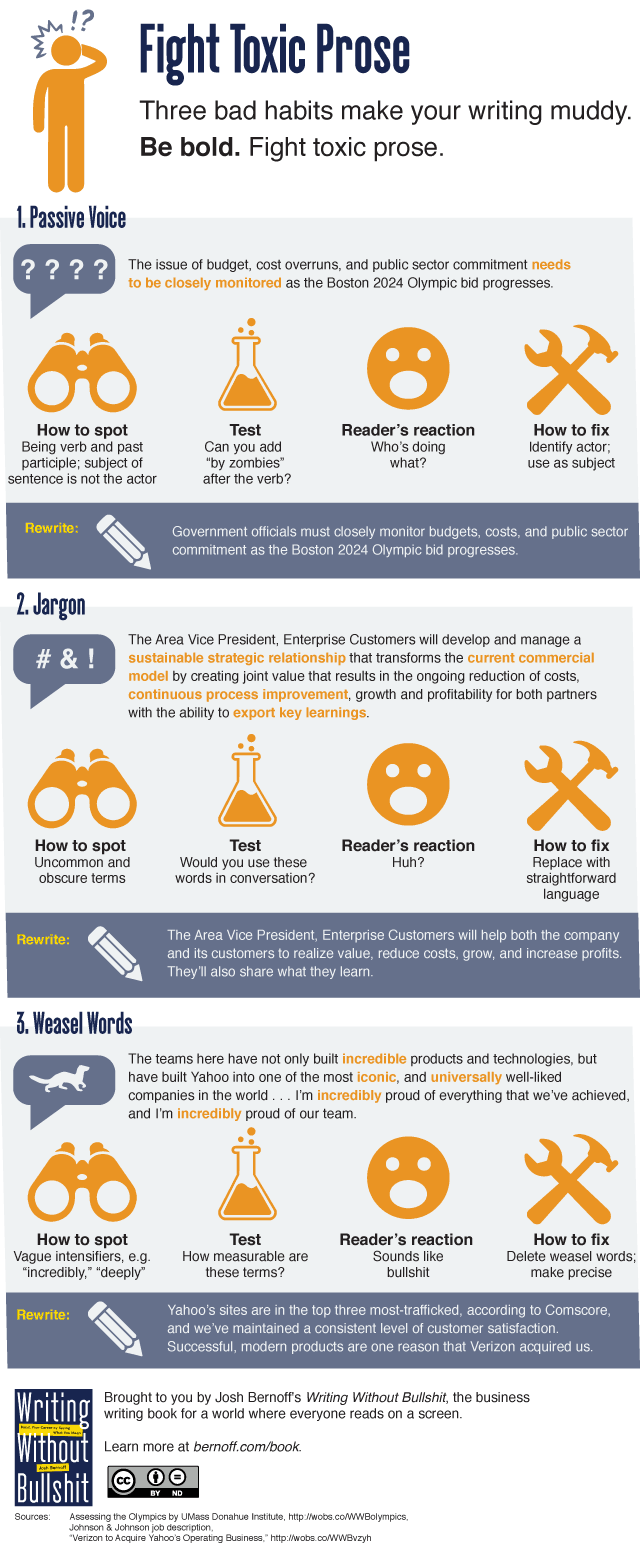Identifying and fixing toxic prose
Did you ever read a passage and then feel woozy afterwards? The problem is toxic prose. Three common writing problems, taken together, make it hard to figure out what people are trying to say.
- Passive voice. When you can’t tell who’s responsible for the actions in a sentence, it confuses you.
- Jargon. When a passage uses arcane technical language, it’s tough to puzzle out.
- Weasel words. Vague qualifiers turn meaning into mush, or meaningless cheerleading.
Bad habits means that these elements get into text. The first step in changing those habits is to become aware of what you’re doing. To help you out with that, here’s an infographic that explains toxic prose and what to do about it. Keep it handy, or just share it with the worst offenders in your office.
Good luck!

Test: “Would you use these words in conversation?”
Problem: for a lot of people, the answer is “Yes, yes they would”.
Perhaps: “Would you use these words in conversation with your parents?”
🙂
Josh, this post is the bomb. I shared to Facebook, and will now begin asking myself, “is this sentence toxic?” Just love you for that gift. Thanks!
All good points! In my work, I’ve encountered clients who have taken a one-day workshop in writing and the only thing they come out of the course with is “Don’t use the passive voice.” And, in most cases, these folks couldn’t tell the difference between the passive voice and the perfect tenses — they just knew that the passive voice used the “helping” verbs and so they would just strike out every single instance of “have” or “had” in a document they were reviewing. I sure wish I had had your helpful hint of adding “by zombies” as a test! And while I agree that over-use of the passive voice is “toxic”, the passive voice exists for a reason and is actually useful sometimes. It’s like salt — too much, and you die; none at all, and you die; you only need a little bit. Sometimes you don’t know who did something; sometimes it’s not important who did something or the object is more important than the doer (e.g., “The President has been shot” is a stronger statement than “Somebody shot the President); sometimes the “doer” is compound or otherwise complex and it’s actually clearer and less awkward to put the sentence in passive voice; and sometimes you just need a little bit of variety.